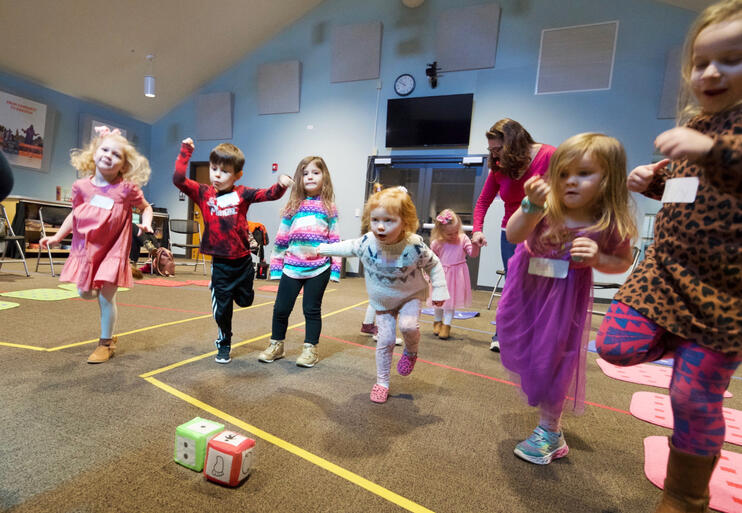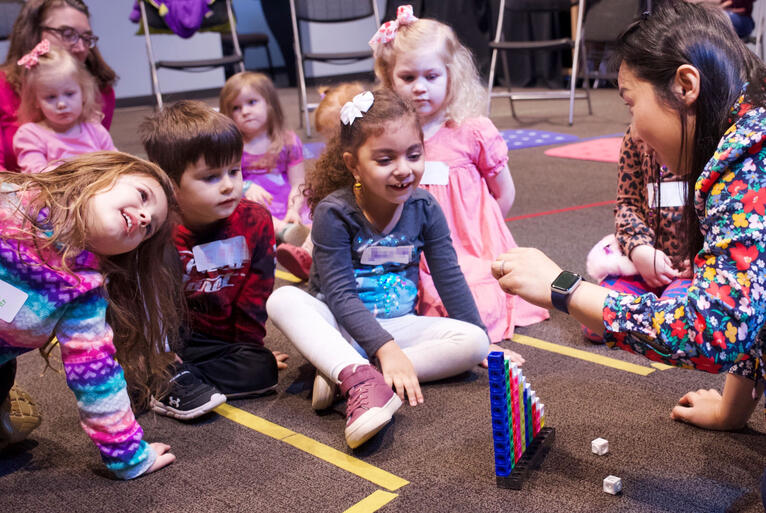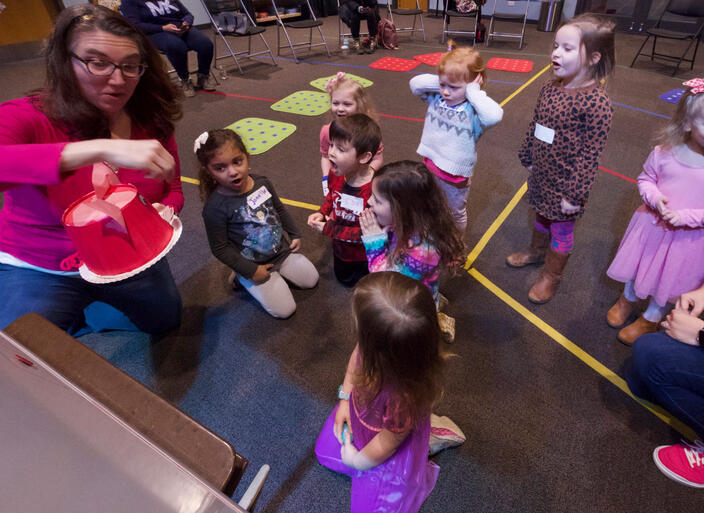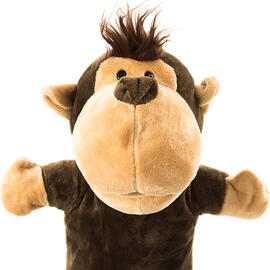
fall registration is open!
Registration for Winter 2026
If you are registering multiple children for the same program, you can include all their information on a single signup form for that program. However, if you are signing up for multiple programs, please complete a separate signup form for each program. This ensures we process your registration accurately.Addition and Subtraction of numbers up to 20
Monday 9:30am-10:15am: registration link.Intro to Multiplication and Division
Monday 10:30am-11:15am: registration link.*This is a free pilot program. But we kindly request participants to commit to attending weekly sessions, because the teaching of each lesson is built upon knowledge learned from previous lessons. (We understand that there may be absence from illness and family emergency).Because spots are limited, please contact us and cancel your registration if things change and you can no longer participate. We may cancel your registration if there are no-shows without notification.
Winter 2026 programs
Location
Hickory Creek Church
10660 W. Lincoln Hwy Frankfort, IL 60423
Time
Mondays:
9:30am-10:15am (Simple Addition & subtraction)10:30am-11:15am (Advance Addition & subtraction)Jan. 26th - Mar. 23th 2026 (skipping Feb. 16th)
Participants
** Addition & Subtraction of Numbers up to 20**:
1st-2nd grade, or if your child has participated in our "Simple Addition & Subtraction" program in Fall 2025Intro to Multiplication and Division:
2nd-5th grade, or if your child has participated in our "Advanced Addition & Subtraction" program in Fall 202516 spots available for each session*We understand that all children learn at their own pace. Therefore, we are open to considering children outside the recommended age range on a case-by-case basis. If you believe your child could benefit from the class but does not fall within the recommended age range, please contact us at [email protected] before signing up. Thank you!
Content and Activities
Teaching will focus on conceptual understanding and the logical reasoning behind algorithms. Addition and Subtraction of Numbers up to 20
Math skills:
1.Ten frame;
2. Hundred chart;
3. Place Value (the meaning of numbers in different digits);
4. Strategies for adding and subtracting single-digit numbers and numbers 10-20;
5. Addition and subtraction word problems. Intro to Multiplication and Division
Math skills:
1. Place Value (the meaning of numbers in different digits);
2. Adding and subtraction multi-digit numbers;
3. The meaning of multiplication and division;
4. Multiplication table;
5. Multiplication and division strategies;
6. Multiplication and division word problems.Formats of activities:
1. Group games
2. Mistake detective
3. Puppet shows
4. StorytimeThroughout the activities, we will incorporate these social skills:
1. Taking turns
2. Teamwork
3. Identifying and correcting mistakes with a positive attitude
about the program
Math Magic is an in-person game-based math pilot program that focuses on building number sense and fundamental math skills for preschoolers and K-5 students. Through fun activities like group games, magic, puppet shows, and storytelling, we will help children to construct an in-depth understanding of math concepts and skills.
why we do it for free
1. For research purpose: to study how children can learn math well in an interactive setting. This pilot program is part of our effort to provide families and educators with resources to help children to achieve in-depth math understanding in a fun and relaxing way. Please visit our website CoconutMath for our online resources.2. As a Hickory Creek Church outreach program.3.As Christians, it's our sincere desire to learn about this world that God created. An in-depth understanding of math and logical reasoning skills are not only important foundations to study the laws and rules in math, physics, biology, chemistry, econ, etc. that God created for this world, but are also great skills that can be used for serving in many different ways. We would love to help children develop math skills from a young age, in a meaningful and fun way.
motivation for the program
Early math skills are by far the number one predictor of later academic achievement, ahead of reading and attention skills. Yet there is a lack of awareness of this importance and a lack of resources to help children build number sense.Evidence of children’s lack of math understanding typically shows at 4th grade or later. By then, children have missed the important years for developing number sense.Young children learn best through in-person activities. When children are engaged in play-based math games, the human interaction, their effort in team work, and their desire to win will motivate them to try their best to understand the math concepts in the games, to come up with the best strategies to solve the problems, and to learn from their teammates (or even from their competitors).
recap on our pilot programs
Homeschoolers' session- Addition & Subtraction Fall 2023
In addition to our regular Number Sense program for 3-5 year old, we started a topic-based 8-week homeschoolers session in the fall of 2023. With the focuses of place value and ten-frame, participants developed understanding and fluency of addition and subtraction strategies. It was amazing to see our participants achieving fluency in making 10 by visualizing ten frame in their heads (without counting). They also wowed us by showing their strategies to add up three-digit numbers with their solid understanding of place value.
We developed a three-step ten frame strategy to help children with fluency in making ten: dot-to-dot; dot-to-number; and number-to-number. After engaging in the activities for three times (10-15 mins each time), they became fluent with making-10 by visualizing the ten-fram in their heads.
SUMMER CAMP 2023 & 2024
We held two 8-day summer camps during the summer of 2023 and 2024. Sessions included "Addition and Subtraction" for rising 1st and 2nd graders, "multiplication and division" for rising 3rd and 4th graders, and "Intro for fractions" for rising 4th and 5th graders. We had a blast and witness so much math learning through playing.
NUMBER SENSE FOR 3-5 YEAR OLD
In the fall of 2022 and spring of 2023, we held two 8-week pilot programs with 3-5 years old participants. The enthusiasm and learning progress achieved by those young children is beyond our anticipation. We witness the magical learning power when children are highly engaged in games they like.

"Number Action" game

Discovering the secret of adding 1

"Feed the pig" addition game
We are truly encouraged by how much kids have learned by "just playing and having fun". Some of our favorite games are inspired by casual conversations with our young participants. That is why we are motivated to keep growing this program.
about our math puppet show

Being able to identify mistakes and correct them are crucial for learning, especially for addressing one's math misconceptions. However, young children tend to interpret mistakes as a reflection on their lack of ability, instead of seeing mistakes as a chance to learn. So they tend to either deny or ignore their mistakes.We will use puppets to help children ease this fear of mistakes and learn to focus on the math tasks.During each of our session, there will be a 5-10 minute interactive puppet show. The characters in the show will make some math mistakes that children often run into. Participants are invited to identify the mistakes and help the characters to correct their mistakes. And we will cheer for the character's learning through mistakes.
about our word problem theater

Word problems are a tool to help children connect math concepts in textbooks with the application of these concepts in real life. Through solving word problems, children get to practice using math as an effective and efficient solution to deal with situations they may experience in real life. The key to solving a word problem is to understand the story in the problem and figure out what needs to be done.Unfortunately, many children view word problems as meaningless tasks that they have to dread dealing with. Without understanding the story in the problem, children often respond to a word problem by guessing how to fit all the given numbers into an equation that they learn. Or they may be taught different ways to decode the word problem sentences, so they can make a better guess of what to do with the numbers.We would like to bring your child's understanding of word problems back to their most original meanings--the stories in the problems. Once they understand the scenario, they will see the math as part of the story, and understand the relationships between the given numbers and the unknown number.Once children understand word problems as stories with a math part in them, it will be natural and easy for them to figure out the answer as the "so, what's next?" part of the story.
about our mistakes dectectives

Being able to identify mistakes and correct them is crucial for learning, especially for addressing one's math misconceptions. However, children tend to interpret mistakes as a reflection of their lack of ability, instead of seeing mistakes as a chance to learn. Therefore they tend to either deny or ignore their mistakes. Adults often don't feel comfortable addressing children's mistakes directly either, worrying that such responses will hurt their children's feelings or self-esteem.We will post math problems (some with correct answers and some with incorrect answers) on the white board. Participants will be invited to be detectives and identify the problems with incorrect answers. And we will discuss why certain answers are wrong and how to correct them.We know all kids are great at finding other people's mistakes, and they won't be shy talking about correcting them.
about me

Yingying Crystal Feil has a Ph.D. in educational psychology (with a focus of math education and learning motivation) and an M.S. in curriculum and instruction from the University of Illinois at Urbana-Champaign. She has many years of research experience in mathematics curriculum development and teaching strategies. And one of her biggest passions is to increase children's motivation in learning.Her work on math education has been focused on bridging the gap between what has been found in research and what is available to parents and families. While many math learning efforts target schools, she firmly believes that families play a vital role in a child’s education. Therefore, the focus at Math Magic has been on creating math games that can be played at home or in small group settings.Crystal is also a mother of two children (age 15 and 13). During her years as a mom, she has discovered many effective and fun math learning activities that are not traditionally used at schools. She is hoping more children can benefit from building number sense and learning math through hands-on games and activites.
contact me
email: [email protected]